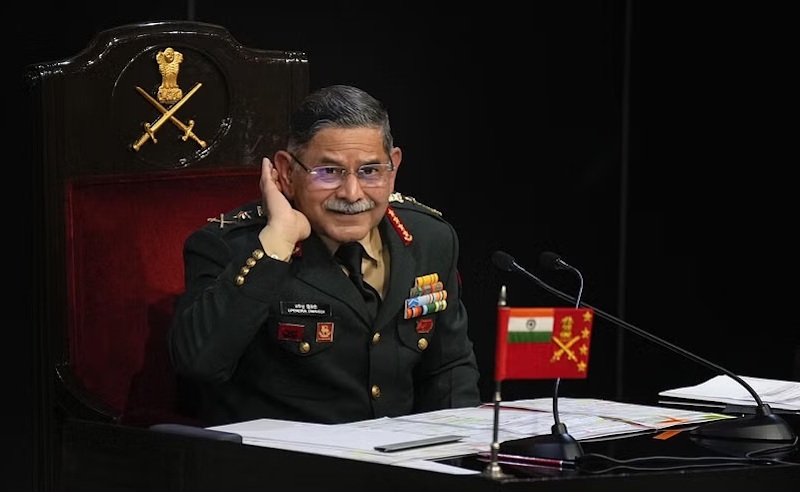 General Upendra Dwivedi.
General Upendra Dwivedi.
New Delhi: In his first annual news conference ahead of the 77th Army Day celebrations, the Indian Army chief, General Upendra Dwivedi, provided comprehensive updates on several critical defence matters, highlighting the military’s strategic positioning and diplomatic relations. In the briefing, the general comprehensively underscored New Delhi’s balanced approach to regional security, combining diplomatic engagement with military preparedness and modernization efforts.
China Border Situation
The situation along the northern borders with China remains “sensitive but stable”, according to General Dwivedi. He confirmed that troop levels would be maintained through the winter, with any potential adjustments to be reviewed during summer deployment based on diplomatic negotiations. He emphasized that troop deployment is directly dependent on the trust factor and infrastructure development is based on “capability assessment, not merely troop presence”.
The border stand-off, which began in April-May 2020 and witnessed the tragic Galwan valley clash, has shown signs of improvement. A significant breakthrough occurred in October when both militaries resumed patrolling in the Depsang plains and Demchok regions of eastern Ladakh, coinciding with high-level diplomatic engagement between the prime minister, Narendra Modi, and the Chinese president, Xi Jinping, in Russia, as India Sentinels had reported.
Bangladesh Relations
Addressing recent diplomatic tensions between New Delhi and Dhaka, Gen Dwivedi stressed Bangladesh’s strategic importance to India, maintaining that military cooperation remains robust despite temporary postponement of joint exercises. He revealed ongoing communication with his Bangladeshi counterpart, including a videoconference on November 24, while emphasizing that broader bilateral discussions should await the formation of an elected government in Bangladesh.
This statement comes in response to recent controversial remarks by the Bangladesh Army chief, General Waker-Uz-Zaman, who characterized India-Bangladesh relations as a “give and take” relationship, while acknowledging India’s crucial role in Bangladesh’s liberation in 1971.
Military Modernization
On the domestic front, the Army chief provided updates on the integrated battle groups (IBGs) initiative, a crucial military modernization project. The proposal, currently in its final stages, awaits approval from the Ministry of Defence. “We have presented to all decision-makers and addressed their queries. By 2025, we will either implement the IBGs or conclude the project,” Gen Dwivedi stated.
The IBGs represent a significant restructuring of India’s strike corps, with implications for financing, equipment, and human resources. The Army has already submitted a draft “government sanction letter” (GSL) for their creation, potentially transforming India’s military capabilities in contested regions.










